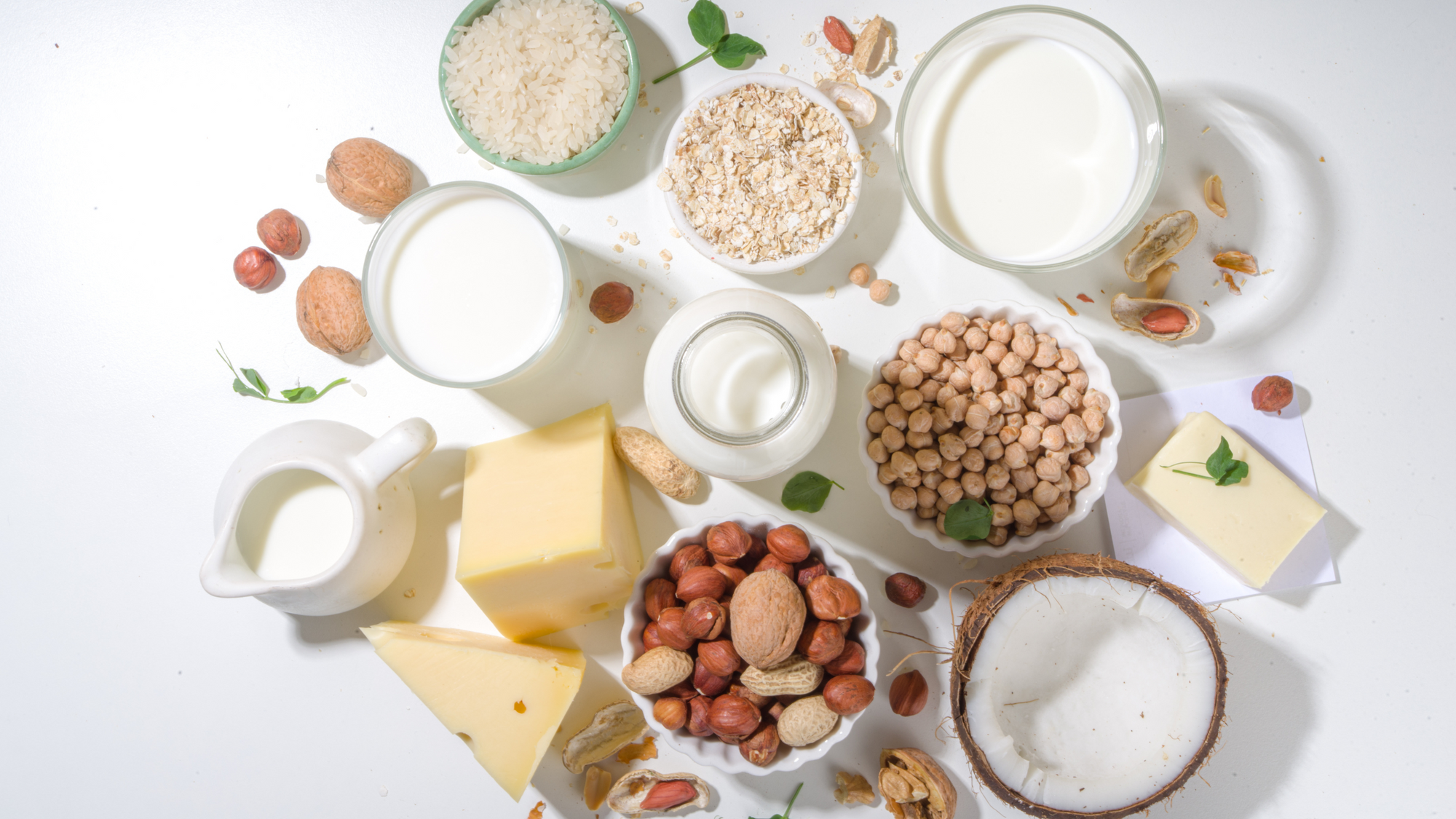
· By Sophie Strommen
Dairy Alternatives - Are they better than the real deal?
Dairy foods are a great source of protein, vitamin D & A, B vitamins, calcium, phosphorus, potassium and iodine. But for our vegans and dairy intolerant friends, dairy can be scary, so let’s talk about dairy alternatives and how they compare to the OG.

Milks
Soy, rice, coconut, hemp, oat, almond, cashew, pea, quinoa…even potato!? There are plenty of dairy free milk alternatives to choose from nowadays. Dairy free milks are normally fortified with calcium, vitamin D and B12 to make sure you’re still getting these important nutrients, but soy milk (especially fortified soy milks) will be the closest milk alternative to dairy based milk in regards to protein and other nutrient content.

Cheese
Cheese can be difficult to mimic without the use of dairy, because the casein found in dairy is what gives cheese its ability to spread and melt. Unfortunately, dairy free cheeses can be very processed when they are made to mimic the texture and taste of cheese, as they are normally made of ingredients such as oils, thickeners, preservatives, flavours and colours. Using ultra processed ingredients also results in a poor nutritional profile, and they are often void of important nutrients found in dairy cheeses unless they’re fortified, and they can also be quite high in fat and low in protein.
There are some dairy free cheeses are available on the market which are made of a blend of nuts, oils, spices, and even live cultures, these alternatives will be much healthier options compared to other ultra processed vegan cheeses. Nut based cheeses will also be higher in protein and fibre!

Yogurt
Oftentimes, dairy free yogurts will be made to mimic the flavour and texture of dairy based yogurts, but not the nutritional contents, so it is difficult to find a dairy free yogurt that matches the protein content of a regular dairy based yogurt. Fermented yogurts contain live cultures and are therefore rich in probiotics, which are beneficial for gut health. Luckily there are loads of dairy free yogurts which also contain probiotics, you just have to look out for “live cultures” on the ingredient label. Remember to also look out for products fortified with vitamins and minerals commonly found in dairy products!

The Pros and Cons
The great thing about dairy free alternatives is that it makes it easier for those who are intolerant to dairy or choose not to have it for health, environmental or ethical reasons, to consume a “normal” diet.
The downsides are that the alternatives can be ultra processed and devoid of nutrients, and although they can be used as practical replacements for dairy, they cannot be used as nutritional replacements.
The bottom line is that both dairy products and their dairy free equivalents can be included as part of a healthy, balanced diet - it all depends on preference. There are also alternatives to other dairy products such as butter, cream, sour cream, ice cream, and kefir! So you definitely won’t be missing out if you decide to ditch the dairy.
Are you team dairy or team dairy free? Let us know in the comments below!
Share:
1 comment
-
This overview of dairy-free milk alternatives is really helpful for making informed dietary choices, especially when focusing on nutrient intake. For those interested in how different foods affect blood sugar levels, this article on the glycaemic index offers additional useful information: https://www.shemed.co.uk/blog/understanding-the-glycaemic-index-gi-for-better-food-choices. Combining both resources supports a more balanced approach to nutrition.
Aria Walker on